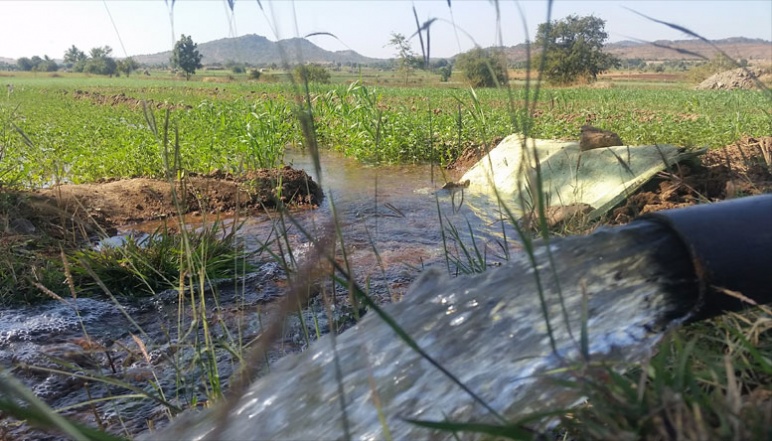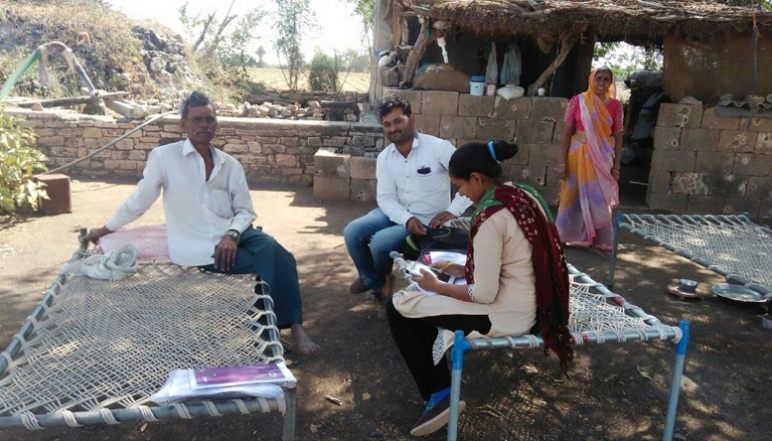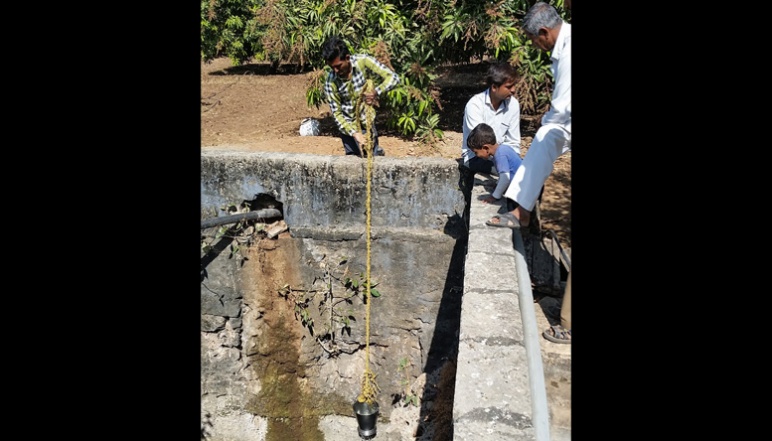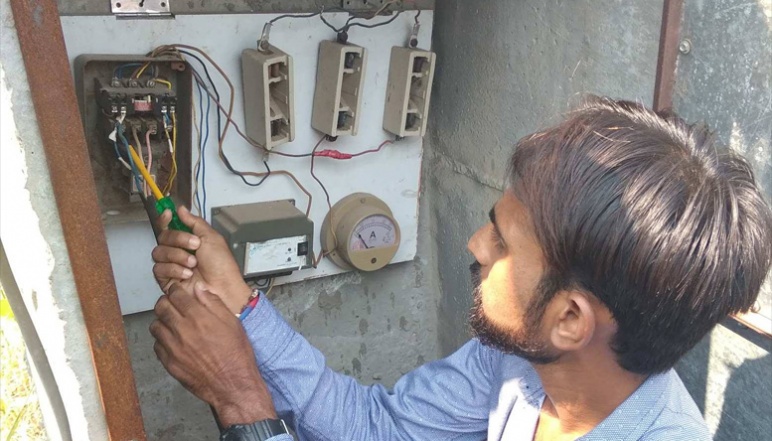Our Research Conservation credits for groundwater management

Flood irrigation of a field in Saurashtra, Gujarat, India. Photo Credit: Nick Hagerty

Endline survey with a participant farmer in Thakarsherdy Village, Khambalia, Devbhumi Dwarka, Gujarat, India. Photo Credit: Gokul Sampath

Field measurements of groundwater quality with participant farmers, Gujarat, India. Photo Credit: Nick Hagerty

Project Associate demonstrating the appropriate installation of the hour meter on the water pump starter. Photo Credit: Gokul Sampath
Project information and engagement meeting with participant farmers in Laluka Viillage, Khambalia, Devbhumi Dwarka, Gujarat, India. Video credit: Knittel, Hagerty, Zucker research team
Principal Investigators
Christopher Knittel
- George P. Shultz Professor
- Professor, Applied Economics
- Sloan School of Management
Ariel Zucker
- PhD Candidate (During Grant Period)
- Department of Economics
Nick Hagerty
- Former PhD Candidate (During Grant Period)
- Department of Economics
Gokul Sampath
- PhD student
- 2024 India Grantee
- 2023 -2024 Rasikbhai L. Meswani Fellow for Water Solutions
- 2022 J-WAFS Travel Grantee
- Department of Urban Studies and Planning
Challenge:
Groundwater is a critical resource for agriculture in India, but regulation governing groundwater extraction is extremely limited. Are payments for voluntary conservation and conservation technology adoption viable strategies for conservation? Do these payments improve water-use efficiency and reduce overall extraction in groundwater-scarce regions of India?
Research Strategy
- Conducted a voluntary conservation payment program among 90 farmers in Gujarat, India
- Collaborated with the Aga Khan Rural Support Program (AKRSP-I) to implement conservation credits in a randomized controlled trial
- Measured impact on water consumption
Project description
Water conservation is an urgent priority in many parts of India, where groundwater depletion threatens agricultural economies. This project studied the potential for “conservation credits,” a program of financial incentives for voluntary reductions in groundwater extraction. Conservation credits may be a cost-effective policy tool in situations where water and electricity are scarce but pricing of either is politically infeasible.
Working with local partner organizations in Gujarat, India, we developed this intervention and then evaluated it in a small randomized trial among smallholder farmers in three villages. Conservation credits are logistically feasible: farmers were willing to participate, meters functioned properly, and we observed little evidence of tampering. Results so far are uncertain due to the small scale of this pilot, but there are indications that the program may have had large effects on water use. A larger evaluation is now under way to generate more reliable evidence on the impacts and cost-effectiveness of conservation credits.
Outcomes
- Determined that rewarding farmers with conservation credits when they save water is a feasible approach to groundwater management that warrants further trials
- Determined that the conservation credit program was both well-liked by participating farmers and also may have caused a large decrease in water use
- Determined that conservation credits in tangent with micro-irrigation system (MIS) saved more water than a conservation credit system alone
- Found that the impact of investment subsidies was difficult to evaluate in a short-term trial because of the sporadic availability of subsidies from the government
Publications
Conservation Credits: A pilot of financial incentives to reduce groundwater use in smallholder agriculture
Nick Hagerty and Ariel Zucker, International Growth Centre, 2018
Additional Details
Impact Areas
- Water
- Climate & Sustainability
Research Themes
- Water Resources & Infrastructure
- Sustainability & Adaptation
- Economics, Policy, & Practices
- Equity & Access
Year Funded
- 2018
Grant Type
- India Grant
Status
- Completed



